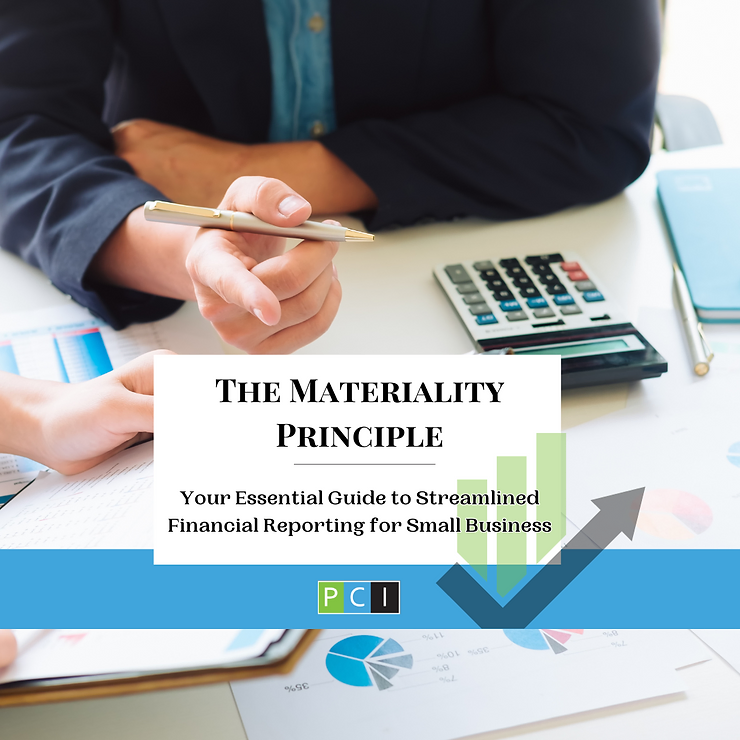What is The Materiality Principle and How Does it Help My Small Business?
Your Essential Guide to Streamlined Financial Reporting for Small Business
If accounting and financial reporting feel overwhelming, it’s time to become acquainted with the materiality principle. This accounting guideline can significantly simplify your small business financials, helping you focus on what truly matters. What Exactly Is the Materiality Principle? The materiality principle is an accounting practice that encourages you to record only the financial information that significantly impacts your business decisions. By adhering to this principle, you can keep your financial records concise and meaningful, avoiding the clutter of insignificant details. Why Is This Principle Vital for Small Businesses?
- Efficiency: Time is a precious resource for small business owners. A simplified financial statement, thanks to the materiality principle, saves you time and effort that can be better spent on other aspects of your business—be it sales, customer relations, or product development.
- Better Decision Making: Focusing on the most important financial information helps you make informed decisions. Whether it’s expanding your business, hiring more employees, or introducing a new product line, key financial metrics will guide you.
Distinguishing Material from Immaterial Financial Info Material Financial Information:
Sales Revenue: Your primary source of income.
- Cost of Goods Sold: The total cost involved in creating the products you sell.
- Operating Expenses: The ongoing costs for running your business.
- Net Income: Your profits, which indicate your business’s health.
- Assets, Liabilities, and Equity: These are your financial pillars that tell the story of your business’s worth.
Immaterial Financial Information: Miscellaneous office supplies
- Coffee maker or kitchen appliances
- Subscription costs for industry magazines
- Small charitable donations
How to Determine Materiality in Your Financials There are a few factors you can consider to decide if a financial item is material: Size of the Item: How significant is the amount compared to your total revenue or expenses?
- Nature of the Item: Is it a one-time expense or a recurring one?
- Overall Impact: How does this item affect your complete financial picture?
- Decision Impact: Would this information influence the decisions of stakeholders or yourself?
A Practical Example: Let’s say you own a bakery with an annual revenue of $1 million. You discover a $100 error in your accounts. In the grand scheme of things, this error accounts for just 0.01% of your revenue and would be considered immaterial. However, if the error were $10,000, that would be a different story. In this case, it’s advisable to correct the error promptly. Final Thoughts Understanding the materiality principle is crucial for small business owners looking to keep their financial statements both concise and useful. This practice enables you to focus on essential financial metrics that genuinely influence your business’s trajectory.
But what do you think about this principal? Revolutionary or just lazy? Let me know your thoughts.
If you find yourself looking for expert advice in navigating your small business accounting and bookkeeping, feel free to connect with us at Perlinger Consulting. Your financial clarity is just a click away.

Here’s to making better, more informed decisions for your business! This article is meant for educational purposes only. Articles contain general information about accounting and tax matters and is not tax advice and should not be treated as such. Do not rely on this information as an alternative to seeking assistance from a certified accountant/tax professional. Perlinger Consulting partners with certified tax professionals to assist our clients.
